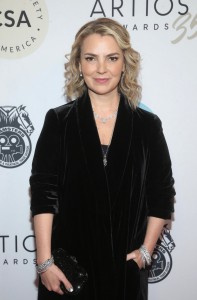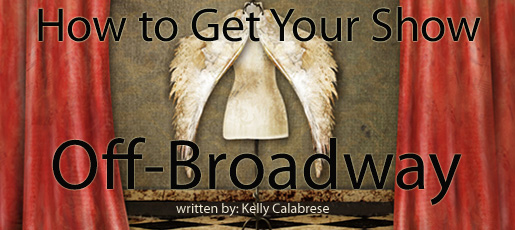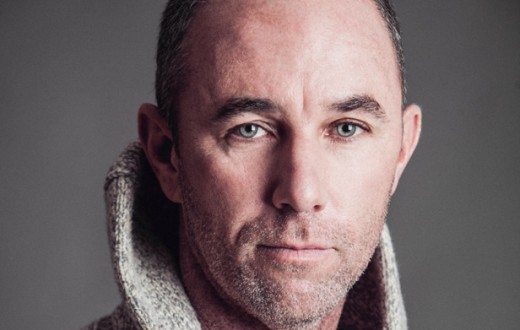Award Winning Latinx Casting Director CARLA HOOL weighs in on what it’s like to cast Latinx actors in today’s entertainment world.
She has been casting film and television for over 20 years. She has worked on films such as Coco, Stars at Noon and the Netflix show Selena: The Series.

In this interview, Hool discusses the challenges of casting Latinx actors and the changes she has seen in Hollywood’s attitude towards diversity.
As a bonus, Carla Hool gives all actors some great advice!
You are considered to be one of the most knowledgeable internationally focused casting directors in the film and television industry with strong casting affiliations in Mexico, Central America and South America and Spain. When you were a child, what was your dream job?
I wanted to work with animals. I wanted to be a vet. Of course that didn’t last long. It was just when I was really young and then when I was a little bit older, I wanted to work in art restoration and therefore I studied art history. And then I got married and ended up not doing the restoration part of it.
Your producer dad has something to do with you being a casting director.
Yes, my dad had something to do with me being a casting director. I had just recently gotten divorced and had kids. I was a yoga instructor and I worked also in some art stuff.
My dad went to Mexico to shoot a film and he invited me to work with him. He put me in casting and I really, really liked it. That’s when he suggested I open something in Mexico because there weren’t a lot of professional casting directors down there, and so that’s what I did.
Out of all the jobs in entertainment, why did you choose to be a casting director?
I didn’t really decide to be in the entertainment industry. I had always been around it because of my family. I’m the fifth generation in the film industry and entertainment, so I had been around it all my life.
You began your casting career with Man On Fire, directed by Tony Scott. How’d you hear about the job? This having been the beginning of your career, did you have any fears or insecurities? Did you have a mentor?
I didn’t really decide I wanted to do that, but I just landed there nonetheless. And casting is where I landed and I really liked it. So I stayed there. I didn’t really begin my career with Man on Fire. I started on a previous movie that I told you about with my dad, and then I worked on a couple of Mexican films before I worked on Man On Fire.
How did I hear about the job? The second out of three projects I worked with my dad. I have worked with my dad throughout my 20 years of career — the very first movie and then this one. He and my uncle were producers on it, and they had some issues with casting in Mexico and they ended up hiring me to come on board and cast a few roles they were having problems with.
I didn’t have any fears or insecurities. I liked what I did and I just went for it. I did not really have a mentor in casting. I would say the only mentor I’ve had is my dad, but just in general, my dad and my uncle when it comes to the entertainment industry, not necessarily casting.
You’re fluent in English, Spanish and Italian and some French. Did you learn these languages to boost your career, or did your career spiral toward International casting because you know so many different languages?
I grew up bilingual with both English and Spanish because I grew up in Mexico. My mom is Mexican. My dad’s family is American, so I grew up with both languages. Then as I was growing up, I started studying French and then eventually Italian because I just liked languages and I lived in Italy for a year. That was just out of love of languages, really. My career spiraling towards international casting mostly was because it is with all the Latin American countries and Spain.
So that’s mostly because I grew up in Mexico. I started working down there and I have knowledge with the Latin Hispanic cultures.
Madison Taylor Baez in Selena: The Series
A report by the USC Annenberg Inclusion Initiative says that Latinos make up about 4.5% of principal roles. Why are there not more roles for Latinos? What are people doing to educate the entertainment industry to have better representation?
That’s a very good question. There are more than when I moved to Los Angeles and that was in 2007. There are a lot more. Now have whole shows that are for Latinos, but there’s still a lot of work to be done in that department. 4.5% is very low.
Regarding what are people doing to educate the entertainment industry to have better representation, I don’t know. I think we’re all trying in our areas… writers, creators, by writing Latinx stories. There’s still, as I said, more representation, but I don’t think we’re we’re there yet. Unfortunately, a lot of the Latinx shows recently have been just getting canceled. I do not have an answer on why that is happening. We definitely need more Latinx people in every department and every area of the entertainment industry.
Talk about the Latinx stereotype. When a Director says they want Latinx, do they have a particular “look” in mind?
There is a lack of knowledge really on what the Latinx community really is. There is this stereotype of all Latin people being brown, for example. The truth is that it’s not an ethnicity, it’s a culture. It’s not a race, it’s a culture. So we have white Latinos, we have black Latinos, we have Asian Latinos, we have Indigenous Latinos. So we have a whole mix. We have more European Latinos. It’s very, very diverse. So you’re actually saying here, Latinos have so many diverse looks. How do you know what look the director wants? Well, they usually tell you. This is something I’ve been fighting for, for many years to, to make everyone understand that we have very diverse looks. If you look at me, you would probably not think I’m Mexican, or most people don’t think I’m Mexican, but I am absolutely born and raised in Mexico. So there is a big, big diversity and we need to educate people about it. I think it’s time to stop with the stereotypes.
Do people think of spicy and stallion when they ask for Latin actors?
I think that is changing a little bit. I haven’t really had a whole lot of of that recently. Whether when they want a Latina or Latinx woman to be sexy and the Latino to be a stallion — I think that’s more like a stereotype that comes a little bit from soap operas and the very few things that people have gotten to see from the Latin culture.
You cast the American computer-animated fantasy film Coco, produced by Pixar Animation Studios and released by Walt Disney Pictures. When casting animation, does the actor’s ethnicity matter? What if there’s a non-Latino actor who can portray an authentic accent for an animated film? Would you consider auditioning a non-Latino actor for roles like that? Why are why not?
I think with all the social movement after the pandemic, things have kind of gone to the other extreme where if the role is LGBTQ, you need to cast an LGBTQ person, for example. Or if it’s Latinx, you need to cast Latinx. In principle, yes, I think you try to cast definitely the ethnicity that the role is, but if you can’t find someone who’s great for that role, that is that ethnicity, I think you can cast someone who’s not, whatever ethnicity you’re looking for, but who can portray it in an authentic manner. The way they look and the way they speak has to be authentic, for me, that’s for me personally because it’s all about respect and respecting all cultures.
I always try to cast authentically but I do also believe that we can’t go to those extremes. At some point, we need to come to a middle point where an LGBTQ person wants to play those roles, but also straight roles. Straight actors would wanna be able to play any kind of role because that’s what they do. They’re actors. It’s complicated because for so many years we’ve been fighting for representation that right now we need to be very, very strict about having everyone cast authentically. If the role is Latinx, we should cast a Latinx actor. That I am absolutely all for that because we haven’t been given the opportunity of portraying these roles before.

I think once things balance out a little bit, and who knows when that happens, there might be a time where we can explore the possibility of casting actors to play whatever they can portray authentically. For example, there is one actor I always bring up because he’s a perfect example, and that is Oscar Isaac.
He is Latinx, but he doesn’t really play Latinx. He’s only played Latinx I think in one or two projects. But every role he’s portrayed, he’s done it authentically and you don’t doubt that he is whatever that role is. So in that sense, I think that is something that is correct and should be done. An actor like Oscar Isaac should be able to play whatever role he wants as long as he can play it authentically… him and any other actor.
So it’s a complicated subject. It’s delicate. I think the most important thing is being respectful and authentic always. That’s priority.
Is it true that the Directors and Showrunners have the last say in who is cast — that the Casting Director narrows down the potential actors for the production to choose from? What if you have a Director / Showrunner who is not familiar with different accents? Do they rely on you 100% to bring them actors who can do certain accents?
The last say, it’s not really the directors or the showrunners. The last say would be studio and network, and of course the opinion of directors and showrunners — they’re going to fight for who they want. What I do is I narrow down all the potential actors who are right for the role and I show those to the showrunners and to directors. Then we do callbacks and then we select the ones that they liked the most and those are the ones that go over to Studio and network.
If there’s a director who is not familiar with Latinx accents, yes, they completely rely on me for accents and whether they speak the languages or not. The languages I know.
You’re a part of Casting Society of America (CSA). At what point in your career did you decide to join CSA? What benefits do you receive from your membership? Do you also use it as a status symbol for professionalism?
I joined CSA shortly after I moved to LA. It’s a society, not a union. They have a lot of events, a lot of workshops, the Artios awards. It’s a group and we help each other.
Do I use it as a status symbol? Well, I mean, it is being a part of a society, a group. Yes. Being part of CSA brings something of status to you being a professional casting director in the United States. Or in different countries being part of CSA is also possible.
In 2020 you were invited to join the Academy of Motion Picture Arts and Sciences. What does your inclusion to this prestigious Academy bring to the industry? Does your joining the organization allow you to do more? If yes, how so? If no, what does being a part of the Academy do for you?
It is great to be a part of the Academy in the sense that I can be a part of watching movies, all the movies, all the foreign films, which I love watching all the foreign films, and being able to also vote and have a voice. That I think is the most valuable thing — being able to have a voice or participate and having a voice — and it’s a beautiful recognition. I mean, after 20 years of very hard work it’s definitely a huge recognition to be invited to join the Academy.
How can actors get on your radar?
Well, projects that I watch, that’s how I find actors and also I tend to read a lot of actors for each role to see new people, so that’s another way to audition. Sometimes I get emails from actors. I don’t always have the time to see everything, but sometimes somebody will pop and be right for something I’m casting in the moment, and I’ll have them take.
What advice do you have for actors who are ethnically ambiguous?
My advice for all actors, not only the ethnically ambiguous, is if you can, get rid of your accent because that is going to open all of the doors for you to play any role possible.
In the U.S. we see people from all over the world and you can play American being from any part. So if you’re ethnically ambiguous, but you have no accent, you can play any role you want, almost any role. The point is it opens up a lot of doors versus if you are ethnically ambiguous and you have an accent, then you’re limited to whatever you can portray with that accent.
Anything else you want to say?
I’m very passionate about fighting for representation for diversity. I think the only thing I would like to say is out for all Latinx people to please just let’s be a united front and help each other and support each other instead of trying to bring each other down. I think we need to support all the Latinx projects out there and turn around and help the people that are coming up behind you.
Follow Carla Hool Casting:








